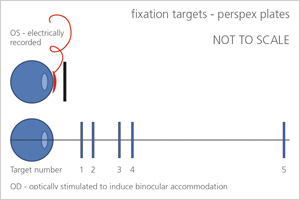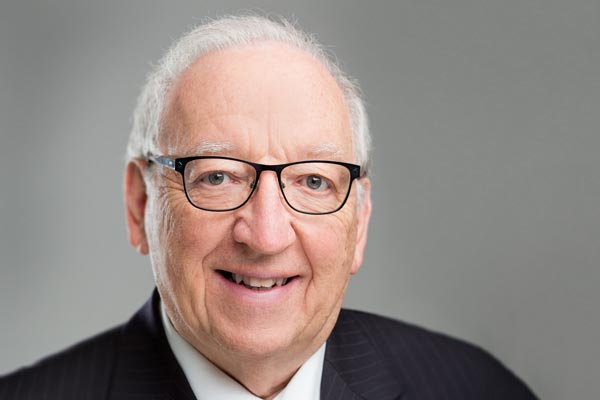Applications of Non-Invasive Ocular Signal Measurements
Margaret Deibel – Hector Fellow Eberhart Zrenner
Several goals were pursued in the development of this work, including the development of a novel in vivo method to measure the ciliary muscle of a human subject non-invasively during accommodation, the characterization of the recorded muscle signals based on the accommodative abilities of the subject, and the development of a device that would utilize the recorded muscle signals to mimic the appropriate level of accommodation for the user, actuated through the use of a variable refractive lens.
Prior to the development of an assistive device, trials to record the accommodative signals of the ciliary muscle during accommodation were performed, using a custom contact lens electrode.
Three groups, each composed of ten subjects, were examined: control subjects, presbyopic subjects, and pseudophakic subjects. From these trials, it was discovered that the novel recording method used produced results that were both useable and repeatable.
Using the results from the ciliary muscle studies, an assistive device was developed. In preliminary proof-of-concept trials, the visual acuity of presbyopic subjects at near targets was found to significantly increase when using the device, while the far visual acuity remained unaffected. This proves that the device is able to use the neural signals produced by the ciliary muscle in order to simulate accommodation through the use of a liquid crystal lens, the refractive power of which is controlled by electrical ciliary muscle response.

Diagram of the final accommodation experiment set-up developed at the Institute for Ophthalmic Research
Margaret Deibel
Eberhard Karls University of TübingenSupervised by

Eberhart Zrenner
Medicine, Biology & Engineering
